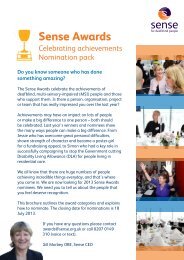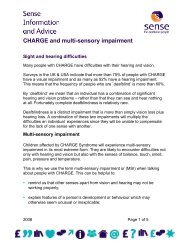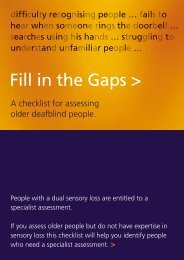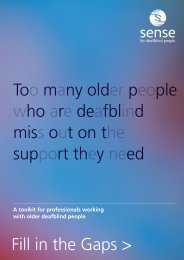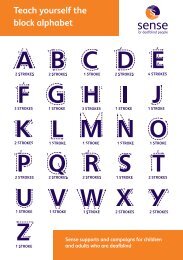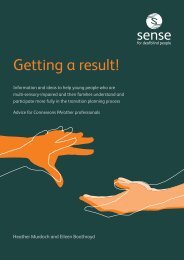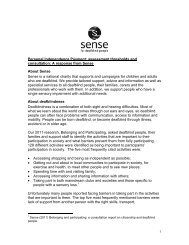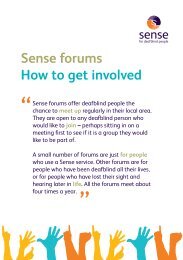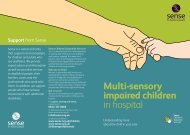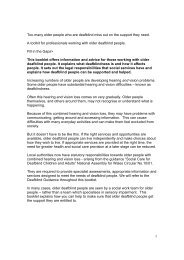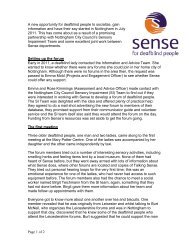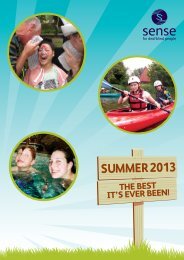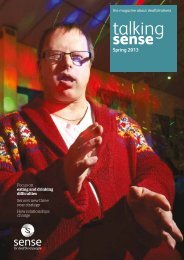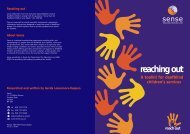MSI Unit Curriculum - Sense
MSI Unit Curriculum - Sense
MSI Unit Curriculum - Sense
Create successful ePaper yourself
Turn your PDF publications into a flip-book with our unique Google optimized e-Paper software.
<strong>MSI</strong> <strong>Unit</strong> <strong>Curriculum</strong>: Phase 4Timetabling takes account of the need of most pupils with <strong>MSI</strong> for additionaltime to complete activities independently.Pupils’ awareness of safety and danger is fostered by discussion with staff,role play, the use of drama and stories and on trips out. Specific individualsafety issues (for example, due to poor sight or epilepsy) are identified andincorporated.Where appropriate pupils use star charts or similar strategies for self-careroutines. Pupils are involved in deciding whether to use such strategies, and intheir design and implementation.The responsibility for identifying the next activity, and for moving to the rightplace with the right resources, moves increasingly from staff to pupils. Somepupils will need prompts (for example, photos of equipment needed for eachactivity) – if so, they are encouraged to be responsible for keeping and using theprompts.In art, design and technology and other creative activities pupils are supported inplanning, completing and evaluating their own projects, working individually orin a small group. Initially they will need considerable support at every stage, butthis is reduced as pupils’ confidence grows.Pupils complete an increasing range of self-care activities independently fromstart to finish, or direct others to do so – for example, ordering and collectingtheir lunch from the counter, or asking a staff member to carry it for them.Pupils are encouraged to lead small group sessions, beginning with very familiaractivities such as greetings or collective worship.Responses to routines and changesPupils generally accept changes in routine if given appropriate explanations.They transfer familiar skills to new situations with support, for examplecounting in different contexts.They can work successfully on a new activity, in a new environment or withan unfamiliar person provided only one or two of these changes occur at atime. They rapidly lose confidence if there are too many changes too quickly.Key routines which pupils use to regulate their day (for example morning arrivalroutines) are maintained unless pupils act to change them.Rhythm and pattern continue to be key elements of many activities. Pupils areencouraged to engage with more complex rhythms and sequences and to noticeand respond to patterns in a range of contexts.93



